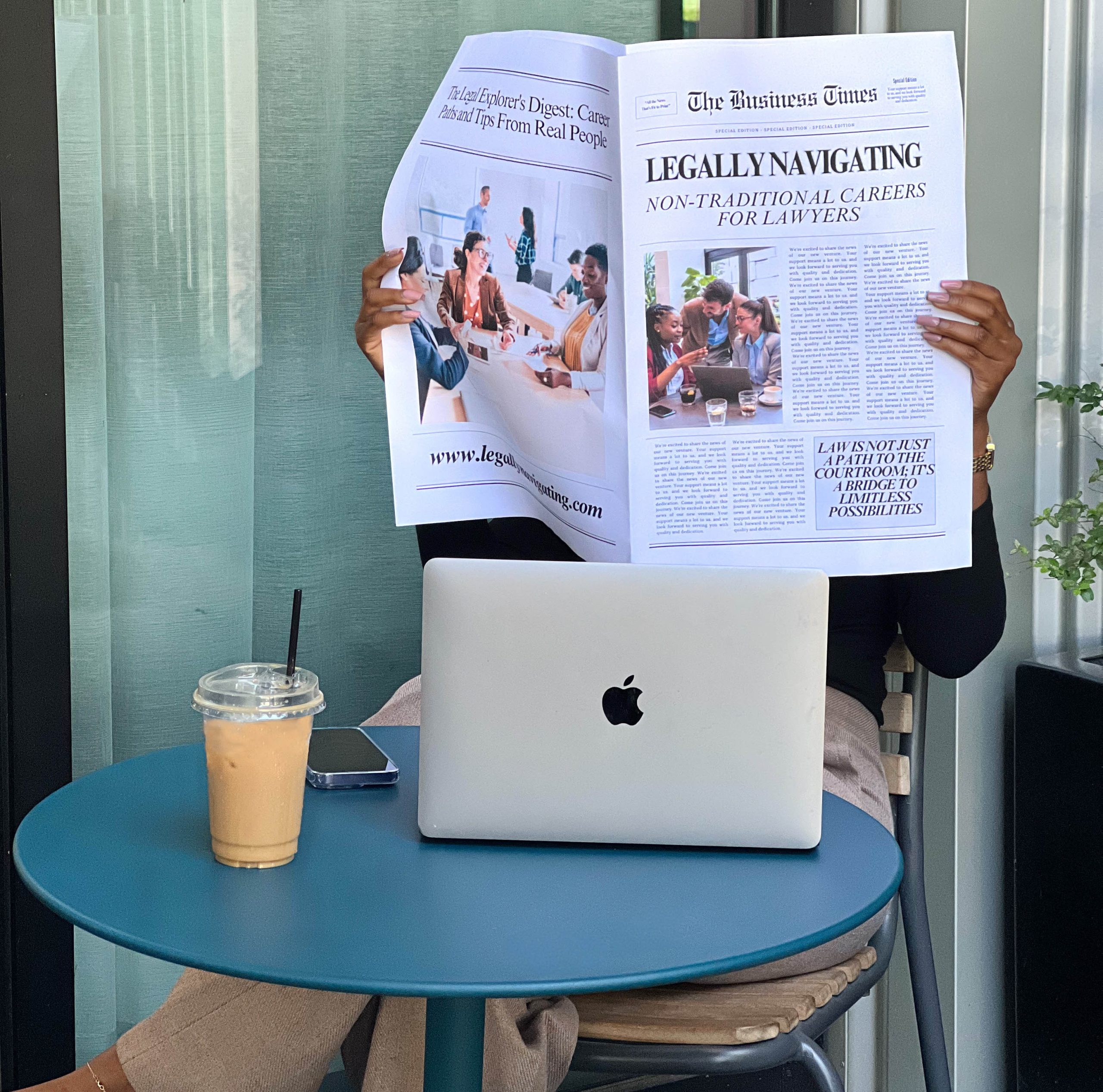I need to make it to a top law firm.
Something like, a litigation attorney at an AMLAW 100.
Is this firm ranked?
Is this industry prestigious enough?
Is this paying enough? Let me check Vault.com and see what my peers are making.
What will people think?
How can I update my LinkedIn to show I’m moving up?
These were the thoughts that consumed my mind over the past five years. At some point, I had to slow down—because I was driving myself crazy. I hadn’t even taken the time to sit down and ask myself, “What do I want?”
Sure, I wanted to be perceived as successful. But why was I allowing others to define what success looked like for me?
So—how did I learn to stop letting my job define me? Truthfully, I’m still learning. But quitting my job at a Vault-ranked law firm was my first step. The harder step came next: I had to face myself. I had to shed the layers of expectation and the fear of how I would be perceived without the title.
As a Black, first-generation woman, perception has shaped my entire experience. I have always been conscious of how I’m seen.
I remember attending a prestigious Catholic school in Haiti where uniforms and formalities were required. I come from a Haitian family that values being clean, proper, and well-mannered—I even was taught etiquette as a child to learn which hand to hold a fork to use at a formal table.
Then, migrating to the U.S., a new layer was added: I was no longer just Haitian, Catholic, or the youngest sibling—I was also now Black. I quickly became aware of how people responded to me based on how I dressed, who I spoke to, how I presented. I saw that perception influenced opportunity.
If I looked polished at school, teachers invested in me. If I didn’t, I was overlooked.
So I wore the “mask”—of what was proper, what was safe, what was accepted.
That instinct followed me into adulthood. It’s why I chose Wake Forest—because I knew it held weight in the Southeast. I chose roles that made me look successful. I went after what would impress others. But somewhere along the way, I stopped asking: What does Marsha want? Or maybe the answer was buried under how I wanted to be perceived.
When I finally quit my job, I left Atlanta, packed my things into storage, and moved back home to Florida. I spent time with family and saw people who didn’t know me as “Marsha the lawyer.” That’s when the unraveling began.
When people asked what I did for a living, I often stuttered. “I’m a lawyer,” I’d say—even though I was unemployed and knew I hated law firm life. Other times I’d say, “I’m unemployed,” which made things awkward. People didn’t ask further, and I’d feel compelled to explain that I left voluntarily… which raised more eyebrows.
I felt raw without the shield of a job title.
I traveled during my sabbatical—DC, Panama, South Florida—and I got used to the question: What do you do? Sometimes I’d say, “I’m a writer,” since that’s what lawyers do anyway. The more I distanced myself from the label, the more space I created to reconnect with myself.
Ghana changed my life. Being there, unemployed, with my fiancé, was liberating. It felt freeing to exist without being “othered,” perhaps because I was in a country full of people who looked like me. I could wear bright red cornrow braids down to my hips without feeling diminished or judged for my expression. I was still smart, driven, and thoughtful—with red hair. That may sound small, but for Black women in the corporate legal world, creative hair expression is often stifled to maintain respectability in white spaces.
In Ghana, no one cared about my job title. I had value simply by existing. I felt creative freedom for the first time in a long time.
When I returned to the U.S. in January 2024, I started job hunting—but I wasn’t practicing what I’d learned. I was still chasing the “right” titles. After five years as an attorney, I believed I should be pursuing roles like:
- In-House Counsel
- Legal Consultant
- Senior Litigation Attorney at an AMLAW firm
- Legal Advisor
- Legal Counsel
But after countless interviews, offers, and gut checks, I realized… I didn’t want those jobs.
Then came a curveball: A recruiter contacted me about a role I hadn’t considered—Senior Claim Director (Employment). I almost said no. I felt like I’d be “settling,” like I wasn’t doing “enough.” The old thoughts returned:
Is this prestigious enough?
Is this paying enough?
What will people think?
Will it look good on LinkedIn?
But I needed a job. And the role intrigued me. So, I said yes.
That’s where my faith kicked in. I feel more aligned in this non-traditional role, than I did in my previous job.
So… how did I learn to stop letting my job define me? I’m still learning. But here’s what I’ve learned so far:
- I am not my job title.
- Being around people who don’t lead with titles reminds me of who I am beyond mine.
- External approval means very little. I’ve had it—and I still wasn’t happy.
- Hobbies and relationships are essential.
- My faith anchors me. I will end up exactly where I am meant to be.
- I can trust me, not just my career.
There’s power in shedding the mask—even if only piece by piece.


